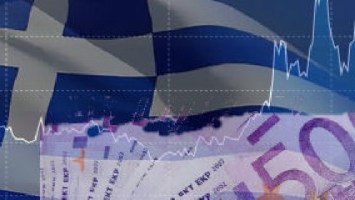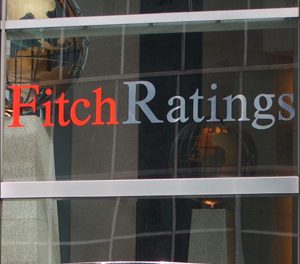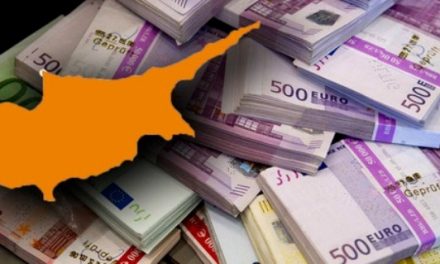The Greek government, approaching the end of a second international bailout that has kept it afloat since 2010, plans a return to markets by selling 2 billion euros ($2.8 billion) of bonds, three officials said.
Only the exact timing remains to be resolved, one Greek official said on condition of anonymity because the plans aren’t yet public. Another Greek official said this doesn’t exclude the possibility of further sales later, with the Wall Street Journal yesterday reporting that Greece hopes to raise as much as 5 billion euros on financial markets this year.
Greek Finance Minister Yannis Stournaras said yesterday that market financing would complement Greece’s other efforts to line up a year of financing, a condition of unlocking money from the International Monetary Fund. Greece “fully satisfies” the 12-month funding condition, he said.
“A small issuance of bonds, three- or five-year bonds, in the first semester, somehow in the first semester of 2014, will also contribute to the financing needs of Greece,” Stournaras told reporters in Athens after a meeting of European Union finance ministers.
The timing of the bond offering will depend on market conditions and will definitely come after the government has met all conditions for the release of 6.3 billion euros of bailout aid, which euro-area finance ministers endorsed yesterday. Greece also is in line for an additional two payments of 1 billion euros each in subsequent months.
Debt Ratio
“With Greece still having an extremely high debt ratio and high outright yields, it’s easy to be skeptical,” said Lyn Graham-Taylor, a fixed-income strategist at Rabobank International in London. “However, the 10-year yield is below the psychologically significant 7 percent hurdle. We would be cautiously optimistic that Greece will issue bonds in the first half.”
The yield on Greek 10-year bonds dropped to 6.40 percent today, the lowest since May 2010 and down from as much as 44.21 percent in 2012. Greek securities returned 23 percent in the first quarter, the best performance among the 14 euro-area sovereign debt markets tracked by Bloomberg World Bond Indexes.
Greek debt has rallied with securities from Europe’s most indebted nations as investors return to markets they shunned during the region’s debt crisis. The average yield to maturity on bonds from Greece, Portugal, Ireland, Italy, and Spain dropped a euro-era low of 2.35 percent on March 27, according to Bank of America Merrill Lynch Indexes.
‘Significant Step’
An official with one of Greece’s institutional creditors confirmed that the 2 billion-euro bond sale is part of plans currently being discussed to cover Greece’s finance needs.
Greece’s return to bond markets would be a “hugely significant step,” said Brian Hayes, an Irish junior finance minister. “There’s growing confidence that the Greek government may well shortly be back in the bond markets.”
George Linatsas, managing director of Axia Ventures’ Athens Branch, said yesterday that the Greek government would return to the bond market in 30 to 40 days.
As Greece seeks to emerge from a six-year recession, politicians in the Mediterranean nation have struggled to meet rescue requirements and keep the government afloat. The Greek parliament this week approved wide-ranging legislation on measures from extending the shelf life of milk to allowing pharmacists to open shops inside supermarkets.
Governing Coalition
The law passed in a contentious midnight vote that saw more fractures in Greece’s slim governing coalition. Prime Minister Antonis Samaras expelled a lawmaker from his New Democracy party for voting against the legislation, and former Prime Minister George Papandreou also voted against part of the bill.
Papandreou, a member of the Socialist Pasok party that is junior partner in the coalition, said the government can survive until an election due in 2016 by stepping up efforts to overhaul the economy and political system.
May’s elections to the European Parliament will produce “a protest vote around Europe,” Papandreou predicted. He sidestepped a question about whether he planned to establish his own political party and quit Pasok, which was founded by his late father and is mustering about 5 percent support in polls for the European legislative elections.
“I think they are simply rumors,” Papandreou said. “Talking about rumors on April Fools’ Day I think is very dangerous.”



















